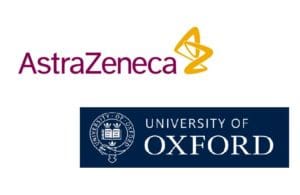 Hopes for COVID-19 vaccines to beat back the pandemic assumed mass-vaccination would slow viral transmission, and not just prevent moderate-to-severe disease.
Hopes for COVID-19 vaccines to beat back the pandemic assumed mass-vaccination would slow viral transmission, and not just prevent moderate-to-severe disease.
Now, early data suggest that AstraZeneca’s (LON:AZN) COVID-19 vaccine, which it jointly developed with Oxford University, can curb viral transmission by up to 67%.
There was more good news from the data. The ChAdOx1 vaccine offered 100% protection against severe disease in a Phase 3 trial. A single vaccine dose offered 76% efficacy between 22 and 90 days after vaccination. Delaying the second dose of vaccine by 12 weeks appeared to boost efficacy to 82%. Efficacy fell to 55% when the gap between doses dropped to less than six weeks.
The study concluded that the U.K.’s strategy of aiming to vaccinate a large proportion of the population with the first dose before administering the second vaccine dose up to 12 weeks later is “an effective strategy.”
Also heartening is the fact that a portion of the data came from regions with highly transmissible variants, including Brazil (Phase 3) and South Africa (Phase 2).
The data has been published as a preprint with The Lancet.
The U.S. has not yet authorized the AstraZeneca vaccine as the FDA is awaiting more results from a Phase 3 clinical trial, which are due later this month.